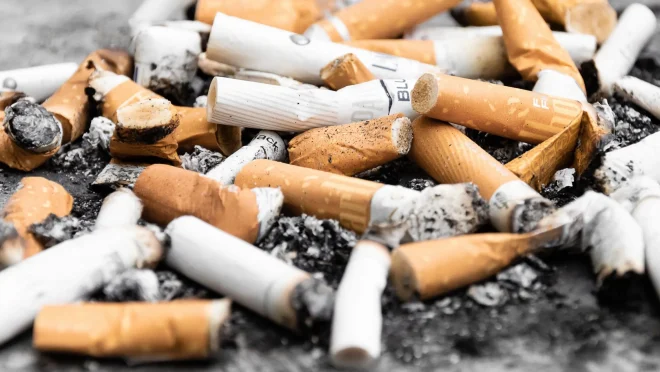Transforming Cigarette Butts (CBs) Into Cotton Can Spark a Sustainable Business Revolution in Bangladesh
Transforming Cigarette Butts (CBs) Into Cotton Can Spark a Sustainable Business Revolution in Bangladesh

Bangladesh, being a densely populated country with a significant number of smokers, has yet to implement a recycling initiative for cigarette butt residues. However, as a developing nation, there is a pressing need for change and innovation to make the economy more dynamic. Recycling these residues can not only benefit the environment but also create opportunities for various businesses. Unfortunately, Bangladesh faces challenges in ensuring equitable resource distribution due to its large population.
Cigarette butts (CBs) have become a major environmental concern, with no proper recycling measures in place. Reports from the Organization for Economic Co-operation and Development indicate that CBs are one of the most littered items, generating two million tons of solid waste in Bangladesh annually. Shockingly, 75% of smokers discard their CBs irresponsibly, contributing to significant litter on the planet. Moreover, CBs are a major contributor to marine pollution, with more than one-third of them ending up in the ocean. This waste poses serious threats to marine life and ecosystems.
Tobacco packaging contains plastic, which exacerbates marine pollution. Notably, discarded lit cigarettes are responsible for a considerable number of fire incidents in Bangladesh, causing damage to properties valued at millions of Tk. CBs are mainly made of non-biodegradable cellulose acetate, meaning they do not naturally decompose over time.
Bangladesh has a high prevalence of male smoking, with a significant number of CBs discarded daily, leading to deforestation and environmental degradation. However, other countries have successfully implemented recycling initiatives for CBs. For instance, companies like TerraCycle in the USA, Green Caffeen in Australia, MéGO in France, and Hubbub in the United Kingdom have introduced programs to creatively recycle CBs into various goods, including cellulose acetate used for manufacturing clothing, furniture, and industrial products.
By embracing the idea of recycling CBs, Bangladesh can contribute to a more dynamic economy and create employment opportunities while also addressing environmental issues. CBs can be transformed into a variety of items, serving as substitutes for plastics, cotton, and paper. This approach not only benefits the economy but also has positive social and environmental impacts.
However, establishing such businesses in Bangladesh comes with challenges, including inadequate public awareness, poor infrastructure, regulatory limitations, and limited resources. Overcoming these hurdles will require concerted efforts from the government, private sector, and civil society.
In conclusion, recycling CBs waste into usable items presents a rare opportunity for Bangladesh to address the growing environmental issue while fostering positive economic and social effects. By converting waste into valuable resources, the country can take a step towards sustainability and create a lasting solution to the CBs waste problem.
Idea credit is attributed to Mir Jerine Farhath. The writer Md Swaid Sameh is an Edge Associate of TBS Graduates from the University of Dhaka. You can contact him at [email protected]


